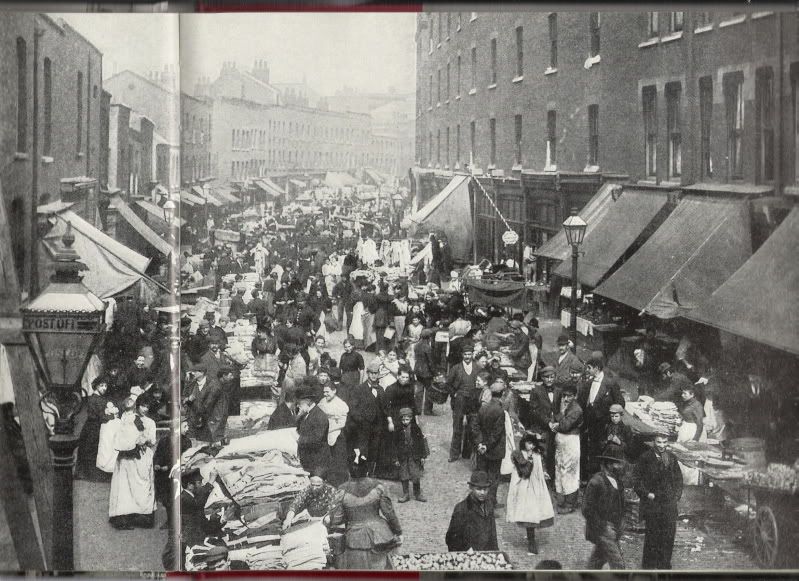Hi everyone,
In 1888 there were witnesses describing different men seen in the areas where the murders to place.
But would Jack the Ripper have taken the risk of being recognized?
If you think there is some evidence for it (you do not have to publish it if you prefer not to) what evidence do you think there is for:
A) An hypothesis that he avoided the risk of recognition?
B) An hypothesis that he did not care about the risk of recognition?
C) An hypothesis that he wanted to be recognized?
Here are some suggestions to start with. I bet you have more:
A) Jack the Ripper avoided the risk of recognition.
1.Since he was not caught when he killed the C-5 he managed to avoid recognition, so that was his strategy.
Evidence: The historical fact that they did not catch him.
Problem: Could he have managed to avoid being caught even if he did not care about being recognized?
2.Killing in the street could imply B or C. Therefore he was not a local man from Whitechapel and therefore he knew that no one would recognize him there.
Evidence: The historical fact that he killed in high risk places.
3.He chose Whitechapel for his murders and used a base in the area since he knew that he would not be recognized there.
Evidence: A 2, among other things.
B) Jack the Ripper did not care about the risk of recognition.
1.He knew the police would not put him to trial and therefore he did not care about being caught.
Evidence: Monro: “Jack the Ripper should have been caught”.
Problem: Low validity and reliability of the source.
2. Killing in the street.
Evidence: Victims were found in the street.
C) Jack the Ripper wanted to be recognized.
1. Killing in the street.
Evidence: Victims were found in the street.
Problem: If he wanted to be recognized, he did not manage it, because then he would have been caught, and he wasnīt.
This (as well as in B above) is also a good hypothesis for discarding Lechmere as Jack the Ripper.
If Lechmere was Jack the Ripper, the policemen at the inquest of Polly Nichols knew who he was after the inquest. Killing in the same area after the inquest implies in this hypothesis that Lechmere would have wanted the police to recognize him.
Evidence: Jack the Ripper killed in the same area.
Problem: Lechmere was never recognized in the area around any other crime scene or at any other crime scene.
Regards, Pierre
In 1888 there were witnesses describing different men seen in the areas where the murders to place.
But would Jack the Ripper have taken the risk of being recognized?
If you think there is some evidence for it (you do not have to publish it if you prefer not to) what evidence do you think there is for:
A) An hypothesis that he avoided the risk of recognition?
B) An hypothesis that he did not care about the risk of recognition?
C) An hypothesis that he wanted to be recognized?
Here are some suggestions to start with. I bet you have more:
A) Jack the Ripper avoided the risk of recognition.
1.Since he was not caught when he killed the C-5 he managed to avoid recognition, so that was his strategy.
Evidence: The historical fact that they did not catch him.
Problem: Could he have managed to avoid being caught even if he did not care about being recognized?
2.Killing in the street could imply B or C. Therefore he was not a local man from Whitechapel and therefore he knew that no one would recognize him there.
Evidence: The historical fact that he killed in high risk places.
3.He chose Whitechapel for his murders and used a base in the area since he knew that he would not be recognized there.
Evidence: A 2, among other things.
B) Jack the Ripper did not care about the risk of recognition.
1.He knew the police would not put him to trial and therefore he did not care about being caught.
Evidence: Monro: “Jack the Ripper should have been caught”.
Problem: Low validity and reliability of the source.
2. Killing in the street.
Evidence: Victims were found in the street.
C) Jack the Ripper wanted to be recognized.
1. Killing in the street.
Evidence: Victims were found in the street.
Problem: If he wanted to be recognized, he did not manage it, because then he would have been caught, and he wasnīt.
This (as well as in B above) is also a good hypothesis for discarding Lechmere as Jack the Ripper.
If Lechmere was Jack the Ripper, the policemen at the inquest of Polly Nichols knew who he was after the inquest. Killing in the same area after the inquest implies in this hypothesis that Lechmere would have wanted the police to recognize him.
Evidence: Jack the Ripper killed in the same area.
Problem: Lechmere was never recognized in the area around any other crime scene or at any other crime scene.
Regards, Pierre




Comment